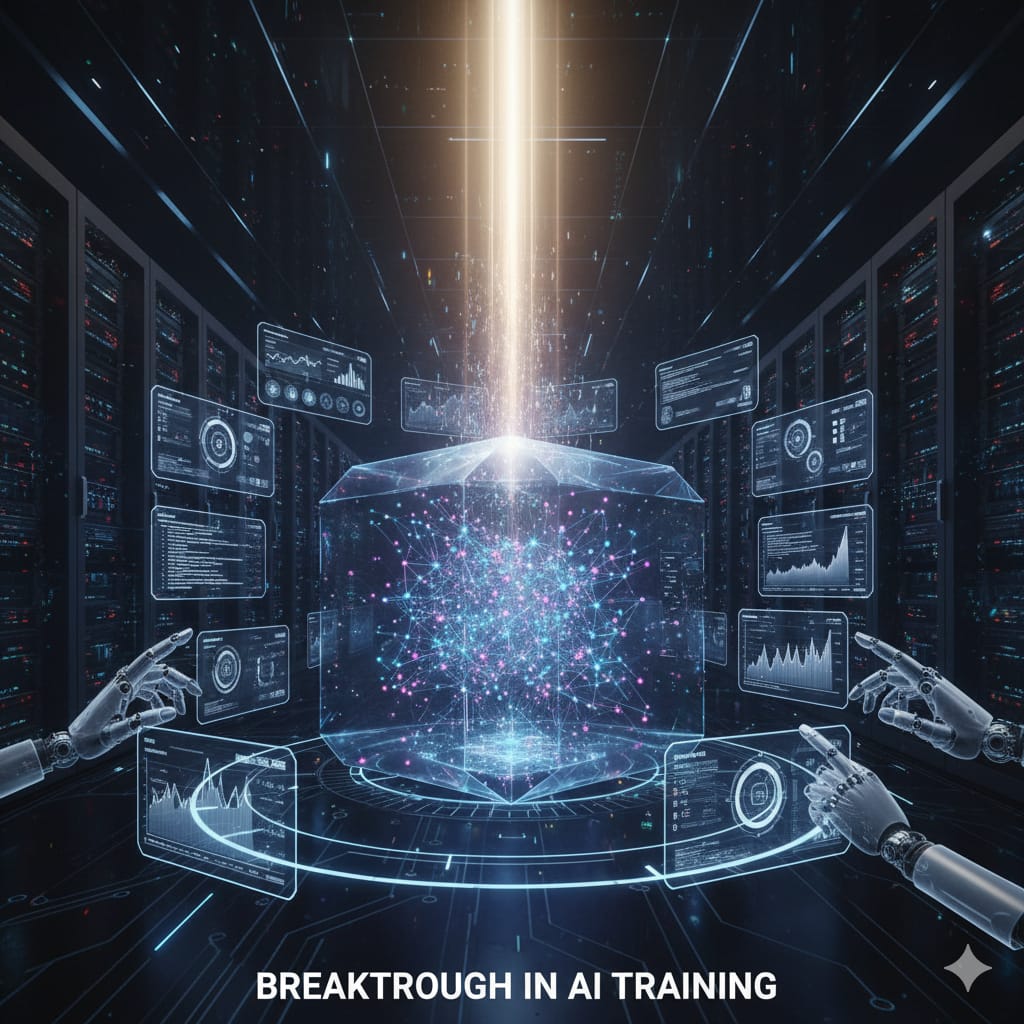Introduction: The Human Element in AI's Evolution
While artificial intelligence often focuses on replacing human tasks, a significant breakthrough has emerged highlighting the critical and growing need for human expertise in training the next generation of AI models. The most pressing news in the last 24 hours revolves around a novel application of AI: using an AI recruiter to find and place highly skilled humans to teach other AIs. This development, led by San Francisco-based startup Mercor, signals a major shift in the AI value chain, creating a new multi-billion dollar niche at the intersection of human expertise and machine learning. This comes alongside other sector-specific AI advancements and amidst rising market concerns that underscore a pivotal moment for the industry.
Mercor's AI-Powered Recruiter Builds a $2 Billion Training Ecosystem
The most significant news breaking today is the revelation that Mercor, a company founded by 22-year-old Thiel Fellows, has pivoted its AI recruitment platform to address one of the largest bottlenecks in AI development: high-quality training data. Originally built to interview job candidates for tech companies, Mercor's AI identified a massive opportunity following Meta's announcement of its intention to acquire nearly half of data labeling giant Scale AI for $14 billion.
Mercor's platform now specializes in connecting top AI labs, including OpenAI, with domain experts such as PhDs, lawyers, and other specialists who can train complex reasoning models. These experts command between $90 and $150 per hour to teach AI systems how to "think" through multi-step problems, a service for which leading AI companies are willing to pay a premium. The company's success is staggering, reporting $6 million in profit in the first half of 2025 and experiencing monthly growth of nearly 60% over the past six months, leading to a $2 billion valuation.
| Metric | Value | Timeframe |
|---|---|---|
| Valuation | $2 billion | February 2025 Funding Round |
| Profit | $6 million | H1 2025 |
| Monthly Growth Rate | ~60% | Past 6 months |
| Expert Hourly Rate | $90 - $150 | Ongoing |
Parallel Breakthroughs: NLP and Vision AI Advance
While Mercor changes the human resource game, other companies are announcing substantial technical breakthroughs. IvedaAI has unveiled a new natural language processing (NLP) capability that allows users to search video footage using plain English queries. This transforms forensic and security investigations, enabling searches for specific descriptors like "a person wearing a bandana" or "camouflage pants."
In a separate development, VelocityEHS published groundbreaking research in IISE Transactions on Occupational Ergonomics & Human Factors. They demonstrated a single-camera AI system capable of continuously classifying six common grip types using standard RGB video. This application provides real-time ergonomic insights to prevent workplace injuries without requiring wearable sensors, representing a major step forward in practical, computer vision-based workforce safety.
The Looming Shadow: Talks of an AI Winter and Market Correction
This flurry of innovation exists alongside growing market skepticism. Prominent voices, including OpenAI CEO Sam Altman, have begun questioning the sustainability of the AI boom, warning that many venture-backed AI startups are grossly overvalued. These concerns are bolstered by an MIT study concluding that a staggering 95% of AI pilot projects fail to deliver production-ready value.
This has triggered discussions of a potential "AI winter," a period of reduced funding and interest similar to what the field experienced in the 1970s and 1980s. However, a key difference this time is the source of funding—today's boom is primarily driven by private venture capital, exceeding $250 billion in investments, rather than government grants. The market is now looking for tangible ROI, putting pressure on companies to move from pilot projects to production.
- High Failure Rate: 95% of AI pilot projects fail to transition to production (MIT Study).
- Overvaluation Concerns: OpenAI's Sam Altman has publicly stated that many AI startups are not worth their current valuations.
- Historical Parallels: The first AI winter was caused by the technology's inability to meet overhyped expectations, a similar pattern to today's concerns.
- Private Investment: The current cycle is fueled by vast private capital, not government funding, making it potentially more resilient but also demanding of commercial results.
Antitrust Rulings Reshape the Competitive AI Landscape
In a major legal development with significant implications for AI competition, a U.S. District Judge has ordered Alphabet (Google's parent company) to share its valuable search data with competitors. Judge Amit Mehta noted that the rise of generative AI chatbots like ChatGPT and Claude had "changed the course of this case." This ruling lowers a significant barrier to entry for AI firms trying to compete with Google's vast data resources, though building competitive products remains "astronomically expensive," according to industry analysts.
Conclusion: A Market at an Inflection Point
The events of the last 24 hours present a microcosm of the current AI revolution: explosive growth in novel applications like Mercor's expert recruitment platform, coupled with technical breakthroughs in NLP and vision, all set against a backdrop of market uncertainty and regulatory change. The industry is at a critical inflection point where the hype is being tempered by the hard requirement for value delivery and sustainable business models.
Mercor's success demonstrates that human expertise remains an indispensable component of artificial intelligence, creating new, high-value markets in the process. Whether the industry can navigate the concerns of overvaluation and project failure will determine if we see a continued boom or a necessary market correction. What is clear is that AI continues to be the most dynamic and transformative force in the global technology landscape.
References
- Forbes: How Three 22-Year-Olds Built A $2 Billion AI Recruiting Startup
- Business Wire: IvedaAI Announces Breakthrough in Natural Language Video Search
- PR Newswire: VelocityEHS Publishes Groundbreaking AI Research on Vision-Based Grip Classification
- The Wall Street Journal: Is an AI Winter Coming? Here Are the Warning Signs

